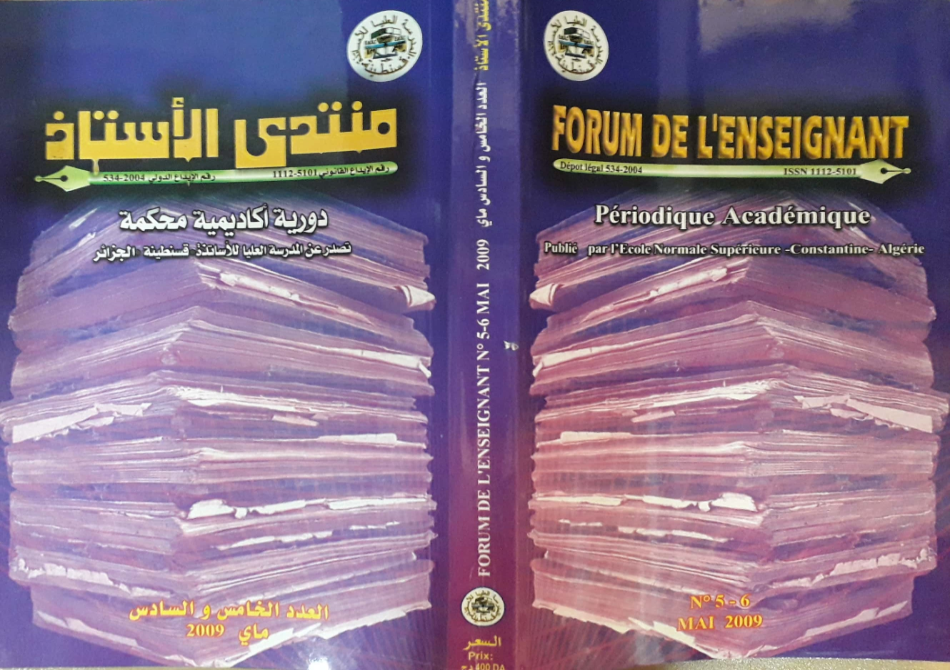ATTITUDES OF THE SCIENCE AND TECHNOLOGY UNIVERSITY’S STUDENTS TOWARDS TERRORISM PHENOMENON
Abstract
This study sets out from a basic hypothesis of no relationship at 5% significance level between attitudes of study aims at identifying the attitudes of the students of the Jordanian Science and Technology University towards the terrorism phenomenon with regards to the concept, the aspects, and the motives. The university's students that might be attributed to the difference in both demographic variables of the students and their economic circumstances and their evaluation for the terrorism and its features.
To realize the study objectives and test its hypothesis, the researcher designed a questionnaire for the collection of necessary data. It was distributed randomly to the university’s students, where the sample represented 6.3% of total students in the university, whose number amounted to approximately 19000 students at the beginning of the academic year 2006/2007.
The study results showed significant differences in the general attitudes of the students concerning the features of terrorism and the actions considered as terrorism. Meanwhile, the motives of terrorism manifested an agreement harmony among those questioned. The demographic factors of the student as well as the economic situation have no remarkable effect on describing the terrorism phenomenon.
Finally, the study recommended that it is necessary to encourage the cultural exchange between Jordanian universities and foreign universities in order to be acquainted with the culture of others so as to enhance concepts of accepting one another and do discard hatred among people. It also recommended the broadening the dialogue circle and students participation in the economic and social process in general, at the university and the national levels.
Downloads
References
Farsoun,S. and Zacharia,C : 1998
Class, Economic Change and Liberalization in the Arab World in: Rex Brynen, Bahgat korany and Paul Nobles, eds., Political Liberalization and Democratization in the Arab World, 2 Vols Boulder, Co.: ynne Rienner Publishers, 1995-1998), Vol. 1: Theoretical Perspectives.
Samuel,P : 1998
The Clarh of Civilization and the Renmaking of Word Order.New York: Simon and Schuster.
Ignatius,D : 2002 Winning Friends in the Arab World, Washington Post 15/7/2002, PA21.
U.S. Department of State : 2004 Patterns of Global Terrorism, Washington, DC.
Bender,D and Leone,B : 1986 Opposing Viewpoints, Minnesota: Green Haven Press.
Al-Sayad,A and Mu'ti,A : 2002 Terrorism between causes and results at globalization age: questions seeking answers and works of terrorism and globalization, Arab Nayef Academy for Security Globalization, Riyadh.
Frank,P : 1999 Bases of terrorism combating translated by Dr. Hisham Al-Hennawi, Cairo, Arab officer for Expenses.
Al-Thakafi,A and Sultan,A : 2003 Social, Economic and Security Dimensions: Coming in case and lack of working powers in the sector, Riyadh, Terrorism combating Research center.
Al-Khalifah,M : 1999 Social Structure and new crimes: Methods of facing thereof, Ryadh, Arab Nayef University for security sciences.
Rashwan,H : 2002 Terrorism and Extremism from Sociology Viewpoint, Alexandria.
Al-Thakafi,H : 2003 Family role in terrorism crimes resistance: a study submitted from Islam position towards terrorism conference, Islamic University of Imam Mohammad Ben Souod, Riyadh.
Al-Akra,I : 1993 Political terrorism, Beirut, Dar Al-Tali'a.
Izzat,M : 2002 Saudi Arabia and terrorism combating, Riyadh.
Nafi',I : 1994 Terrorism nightmare and veils dropping, Cairo, Ahram Center for Translation and Publication.





